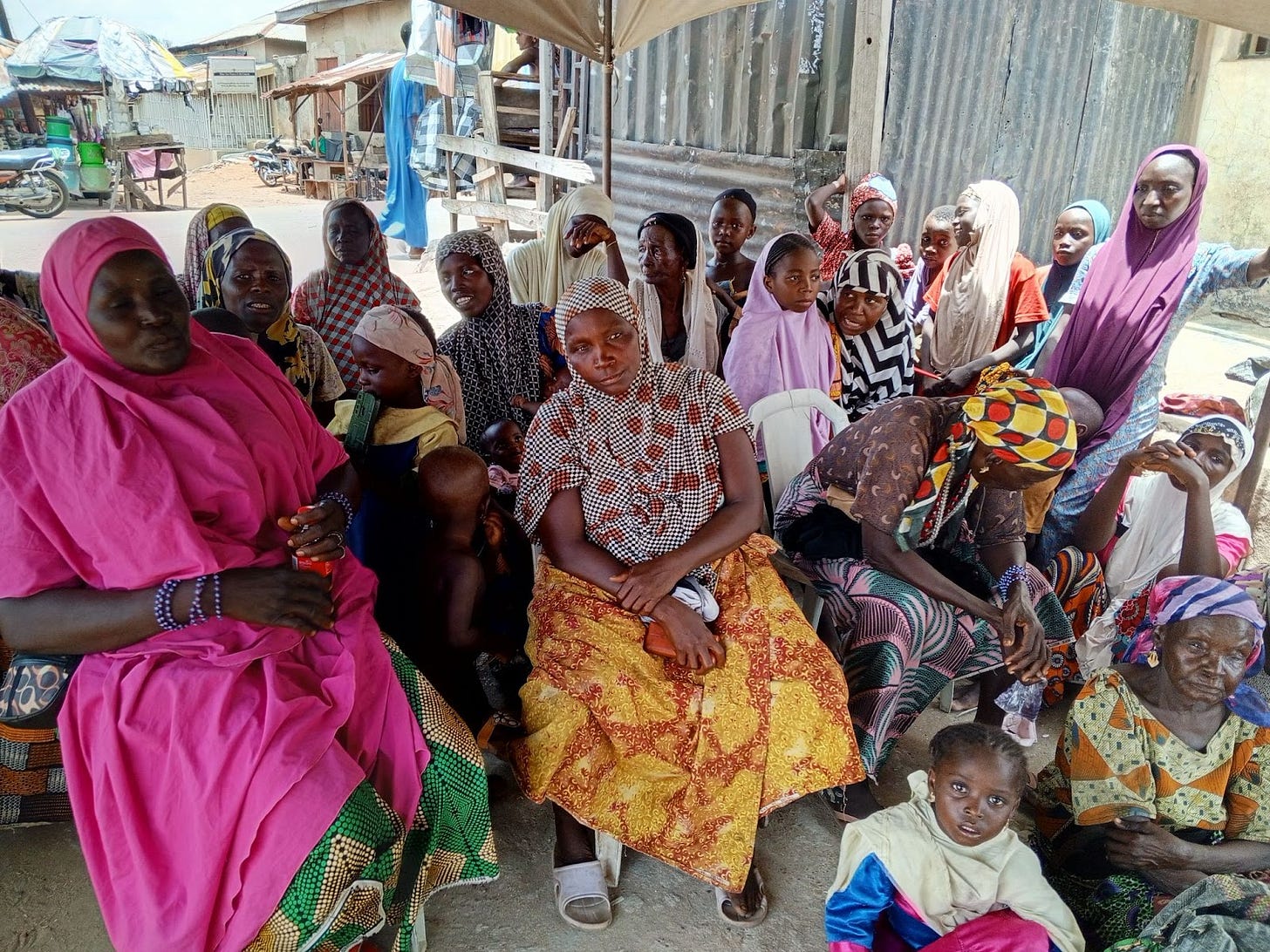Building trust through data in rural Nigeria
Digest #85
In the quiet town of Ajaokuta, Kogi State, Nigeria, I met Amina, a 14-year-old Muslim girl with a physical disability. She told me about the challenges she faces in getting an education. Her school has no ramps, no learning aids, and her teachers lack training on how to best include students with disabilities. Amina also spoke about how bullying from her classmates and the stigma in society make it even harder for her to attend school. Girls like Amina face many layers of discrimination being young, being female, living in a rural area, and being disabled. Her story is unfortunately not rare; through my work I have met many girls who are unable to attend school due to a wide range of reasons, including disability, but also because of social stigma and lack of suitable schooling nearby.
The inequalities between boys and girls, and between cities and rural areas in access to education as well as many other services, are well known, yet still persist. Lack of data and lack of engagement with processes like the census are a key blocker to progress. Without data that helps governments and service providers understand the reality of disabled people’s lives, policies perpetuate marginalization, leaving critical needs unaddressed and voices unheard. Inclusive data practices can break this cycle by ensuring representation, empowering communities, promoting equitable decision-making, and most importantly building trust with these communities that have often been forgotten.
Embedding participatory data collection as a standard practice
In rural communities where verbal communication often takes precedence over written records, storytelling serves as a powerful tool for understanding the lived realities of marginalized groups. Stories provide a rich, contextual understanding of challenges that numbers alone cannot capture. In my research, focus group discussions and personal narratives have revealed how societal stigma, insufficient support systems, and discrimination perpetuate the exclusion of Muslim girls with disabilities from education.
In my recent research for the African Policy Network, one particularly striking story emerged during a focus group discussion with Muslim girls with disabilities. A young girl with a mobility impairment shared how, despite her eagerness to attend school, she was forced to drop out because the only school in her village lacked accessible facilities. She described how the journey to school was physically exhausting and unsafe, as she had to rely on neighbors to carry her across uneven, flood-prone terrain. Additionally, teachers often assumed she was incapable of learning, reinforcing societal beliefs that education was not a priority for girls like her. Her story showed how different challenges: lack of accessible schools, societal stigma, and weak support systems combine to prevent girls with disabilities from getting an education. While data may show low school enrollment for people with disabilities, storytelling helps reveal their daily struggles and the deeper reasons behind their exclusion.
As a Muslim woman from Northern Nigeria, I have experienced firsthand the intersectional barriers faced by marginalized communities, particularly women and girls with disabilities. I have seen how involving marginalized groups directly in data processes, such as determining what data to collect and how to interpret it, ensures that their experiences are authentically represented. In my research, I have provided a safe space for women and persons with disabilities to share their lived experiences, shaping the research priorities to reflect their actual needs. Utilizing methods that focus on storytelling through mapping allowed local participants to visually represent issues such as inaccessible infrastructure, land degradation, and climate vulnerabilities, ensuring that data collection was not extractive but educating and empowering.
These participatory methods foster trust and ownership among participants, making it more likely that the data collected will lead to decisions that reflect the reality of people’s lives. Moreover, they empower marginalized groups to continue engaging in these processes, strengthening their voices in policy and development discussions over a longer time frame.
A future of equity and empowerment through data
In Nigeria, a nation marked by diversity yet burdened with deep-seated inequalities, inclusion is crucial for progress. The last census estimated that more than 27 million Nigerians are living with disabilities, making the stories I have heard all too common. Numbers alone might show low enrollment rates for children with disabilities, but they do not explain the daily struggles and systemic barriers that keep them out of school.
When marginalized groups are actively involved in shaping data, deciding what is measured and how it is interpreted, their realities are more accurately represented. This approach ensures that policies and interventions address real needs rather than relying on assumptions. Inclusion isn’t just about access; it’s about valuing every voice and enabling every person to meaningfully participate in society and fulfill their potential. A more equitable Nigeria is possible, but it starts with listening to and empowering the most vulnerable among us.





I just finished reading your blog, and I wanted to take a moment to thank you for sharing such an important and powerful perspective. Your storytelling brought to life the challenges faced by marginalized communities, especially Muslim girls with disabilities, in such a compelling and heartfelt way. The way you highlighted the significance of participatory data collection and the role of storytelling in shaping inclusive policies truly resonated with me.